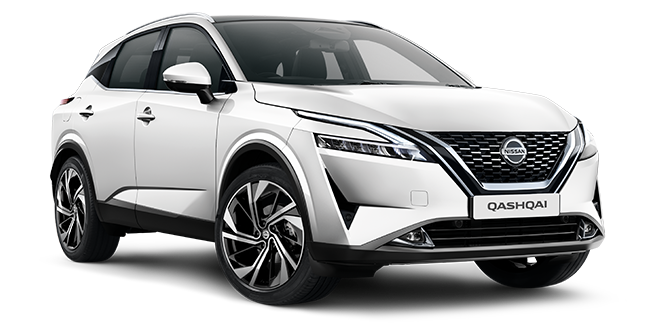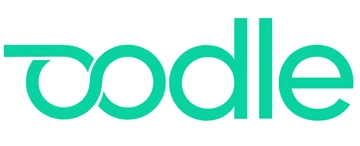Rates from 9.9% APR. Representative 19.9% APR. Hire Purchase (HP) Example: Borrow £10,000 over 5 years with a £0 deposit. Representative APR 19.9% fixed rate. Monthly payment: £255. Total cost of car finance: £5,329. Total amount repayable: £15,329. Carboom is a credit broker not a lender.
What is PCP?
Personal Contract Purchase (PCP) is a popular car finance option that offers flexibility and affordability. Unlike traditional car loans, PCP focuses on covering the depreciation of the car rather than its full cost. This means your monthly payments are generally lower compared to other finance options.
Under a PCP agreement, you make an initial deposit followed by fixed monthly payments over an agreed term. These payments only cover the car's value depreciation during the contract period. At the end term, you’ll have three options: return the car, make a final balloon payment to own it, or use its future value as a part exchange for another vehicle.
PCP is ideal if you prefer lower monthly repayments and flexibility at the payment end. However, factors like annual mileage and the car's condition can affect your final payment and the car’s future value.
Can I get a PCP finance with a bad credit score?
Yes, you can get PCP car finance even with a bad credit score, but the process may involve additional considerations. Most lenders assess eligibility through a credit check, which helps determine your ability to repay the loan. While a poor credit history might limit your options, it doesn't necessarily disqualify you.
When you apply for PCP, lenders evaluate factors like your credit rating, annual income, and the initial deposit you can offer. Understanding PCP car finance eligibility criteria helps you prepare a stronger application. A soft credit check may be conducted initially to gauge your likelihood of approval without impacting your credit score. Some lenders specialise in helping customers with bad credit, tailoring their finance deals to suit individual circumstances.
At Carboom, we work with a range of credit brokers and PCP car finance providers to find solutions for various credit backgrounds. Even if your credit history isn't perfect, you can still secure a finance deal by putting down a higher deposit amount or choosing a car with a lower total cost. It's important to consider the interest rate, representative APR, and total amount payable to ensure the deal fits your budget.
How does PCP finance work?
PCP car finance simplifies borrowing by splitting the cost of a vehicle into manageable parts. Here’s a step-by-step guide to how it works:
- Choose a car and agree on terms
Select a new or used car, decide on the loan term, annual mileage limit, and initial deposit. These factors determine your monthly payments and final balloon payment.
- Pay an initial deposit
The deposit amount reduces the total cost of the car and impacts the size of your fixed monthly repayments.
- Make monthly payments
Your monthly payments cover the car's depreciation during the term, based on its future value at the agreement's end.
- Decide at the end of the term
At the end term, choose to:
- Pay the optional final payment (balloon payment) to own the car outright.
- Return the car without additional payments (subject to mileage and condition).
- Use the car’s value as a part exchange for a new finance deal.
PCP car finance calculator
Finance calculator
- 12month
- 24month
- 36month
- 42month
- 48month
- 60month
This helps you get a more accurate finance estimate
Not sure about being approved?
Check finance eligibilityWon't affect your credit score
We are a credit broker not a lenderThese estimates are subject to credit checks, and may change if you do apply for finance.
| PCP | £0/pm |
|---|---|
| Loan amount | £9,900.00 |
| Length of Loan | 60 months |
| Monthly payment | £0 |
| Interest rate | 9.9% APR |
| Optional final payment | £0 |
| Amount of interest | £0 |
| Total payment | £0 |
| HP | £0/pm |
|---|---|
| Length of Loan | 60 months |
| Monthly payment | £0 |
| Interest rate | 9.9% APR |
| Optional final payment | £0 |
| Amount of interest | £0 |
| Total payment | £0 |
Personal Contract Purchase example
Let’s break down a Personal Contract Purchase (PCP) deal with numbers to make it clearer. Suppose you’re financing a used car valued at £20,000. Here’s how it might work:
- Deposit: You pay an initial deposit of £4,000, reducing the loan amount to £16,000.
- Loan term: Over a 3-year agreement, you make fixed monthly payments of £250, which cover the car’s depreciation during this period.
- Balloon payment: At the end of the term, the car’s future value (guaranteed minimum value) is estimated at £10,000. This is your optional final payment if you want to own the car outright.
You can either pay the balloon payment, return the car, or use its valuation as a part exchange toward a new finance deal. This flexibility is why PCP is a preferred option for many buyers.
What is the difference between Hire Purchase and Personal Contract Purchase?
Hire Purchase (HP) and Personal Contract Purchase (PCP) are two popular car finance options, but they work differently in terms of ownership, monthly payments, and flexibility. Here’s a detailed comparison:
Feature | Hire Purchase (HP) | Personal Contract Purchase (PCP) |
Ownership | Ownership is automatically transferred once all payments are made. | Ownership only transfers if the balloon payment is made. Otherwise, you can return the car or use it for part exchange. |
Monthly payments | Higher monthly payments as you pay for the car's full cost over the term. | Lower monthly payments as you only pay for the car's depreciation during the term. |
Deposit | Typically requires a larger deposit amount upfront. | Requires a smaller initial deposit, making it more accessible. |
Final payment | No final balloon payment is required; the loan is fully repaid by the end of the term. | An optional final payment (balloon payment) is required to own the car outright. |
Flexibility | Less flexible; the car is yours once the term ends. | Highly flexible; choose to return the car, buy it, or trade it in at the end of the term. |
Mileage restrictions | No mileage limits apply. | Mileage limits are imposed, with excess mileage charges if exceeded. |
Best for | Those who want to own the car outright and avoid restrictions. | Those looking for lower monthly repayments and flexibility at the end term. |
While HP focuses on straightforward ownership with higher monthly payments, PCP offers flexibility and affordability. The best choice depends on your priorities, whether it’s owning the car outright or enjoying lower monthly costs with flexible options at the end of the agreement.
What are the pros and cons of PCP?
Personal Contract Purchase (PCP) is a flexible car financing option, but like any financial product, it has its advantages and disadvantages. Here’s a breakdown to help you decide:
Pros of PCP
- Lower monthly payments: You only pay for the car’s depreciation, not its full cost, which keeps monthly repayments affordable.
- Flexibility at end term: You can return the car, make a final balloon payment to own it, or trade it in for a new deal.
- Access to newer cars: PCP allows you to drive a higher-spec vehicle due to the lower monthly payments compared to other finance options.
- Fixed rates: Agreements often include fixed interest rates, ensuring predictable costs.
Cons of PCP
- Balloon payment: To own the car outright, you must make a large final balloon payment.
- Mileage restrictions: Contracts impose mileage limits, with excess mileage charges if exceeded.
- No ownership during the term: Until you make the final payment, the car belongs to the finance company.
- Potential for negative equity: The car’s value may drop faster than expected, affecting your options at the end agreement.
How can I make PCP more affordable?
There are several strategies to reduce the costs of Personal Contract Purchase (PCP) and make it more manageable. Here’s how you can approach it:
- Pay a larger deposit
A higher deposit amount lowers the overall amount you need to borrow, which reduces your monthly payments. For example, increasing your deposit from 10% to 20% can significantly decrease the financial burden over the term.
- Choose a longer payment term
Extending the payment term spreads the cost over a more extended period, leading to lower monthly repayments. However, remember that longer terms may increase the total cost due to added interest rates.
- Select cars with higher resale value
Cars that retain their value well are ideal for PCP. A higher future value means a smaller balloon payment and potentially lower monthly repayments. Researching models with minimal car depreciation can save you money.
- Opt for a cheaper vehicle
Choosing a vehicle with a lower total cost reduces the amount you need to borrow, which directly impacts your monthly payments and final balloon payment.
- Budget carefully
Use a finance calculator to plan your budgeting before committing. This helps ensure that your chosen deal fits within your financial means, avoiding missed payments that could affect your credit.
What are your full options at the end of the PCP deal?
When your PCP car finance term concludes, you have three main options to choose from, offering flexibility based on your preferences and financial situation:
- Ownership
Pay the balloon payment (also called the optional final payment) to take full ownership of the car. This option is ideal if you want to keep the vehicle long-term. Ensure you budget for this lump sum payment in advance. - Car return
Return the car to the finance company with no further payments, provided it’s within the agreed mileage limit and in good condition. Excessive wear or excess mileage charges may apply. This is a good choice if you no longer need the car or wish to avoid further costs. - New car selection
Use the car’s value as a part exchange toward a new finance agreement. This allows you to upgrade to a newer model while rolling over into a fresh PCP deal.
Who is eligible for PCP car finance with poor credit?
| To apply for car finance you need to | Requirements | Car must meet the following criteria: |
Your name | Be aged 18-75 years old | Car finance from £4,000 – £40,000 |
Date of birth and nationality | Requires initial deposit | Maximum of 120,000 mileage on the vehicle |
Your recent address history | Receive a monthly income of £1,000 or above | No older than 14 years at the end of the agreement |
Tour employment status | ||
Your income and expenses |
Is PCP a good idea for me?
PCP car finance can be a good option for those with a bad credit score, especially if you prioritise lower monthly payments and flexibility. Getting a car on finance with bad credit is more accessible through PCP than many other finance options, as lenders focus on affordability rather than credit score alone. It’s ideal for drivers who want access to newer vehicles without committing to full ownership. However, consider your driving habits—staying within the mileage limit is crucial to avoid additional charges. Assess your financial situation carefully to ensure the deal fits your budget and needs.
Get PCP car finance while on benefits without worrying

Get your car finance
Check your eligibility for car finance deals with no impact on your credit score

Buy a car from any dealer
Once approved, collect or get your vehicle delivered to you. Make sure to sort out your car insurance before driving.

Carboom quality assured
We’ll do a thorough car check, full-service history and dealer check. Buy with confidence.
Buy your car with confidence
You can get your car finance quotes quickly and easily, without any hassle. Imagine yourself behind the wheel of your new car—it could be just a few steps away!
Get my quoteFAQ
What does PCP stand for?
PCP stands for Personal Contract Purchase, a type of car finance where you pay for the car’s depreciation through monthly payments. At the end of the agreement, you can choose to buy the car, return it, or trade it in for another vehicle.
Can I end my PCP deal early?
Yes, you can end your PCP deal early by requesting a voluntary termination or settling the finance agreement. You may need to pay off at least 50% of the total amount payable or cover the remaining balance, including the balloon payment, depending on the agreement terms.
Can you modify a car on a PCP agreement?
No, modifying a car under a PCP agreement is generally not allowed. The car must be returned in its original condition at the end of the term. Any unauthorised modifications could result in additional charges or impact your ability to return the car.
Can I cancel a PCP agreement?
Yes, you can cancel a PCP agreement, but it depends on the timing and terms. You can exercise your right to withdraw within 14 days of signing under the cooling-off period, or terminate later by paying off the required balance or returning the car under voluntary termination rules.
What are the alternatives to PCP car finance?
Alternatives include Hire Purchase (HP), where you pay for the car in instalments to own it outright, or a personal loan, which provides flexibility to buy the car directly. Leasing is another option, allowing you to rent a car for a fixed term without ownership. Each suits different needs and budgets.
What happens if I decide to return the car?
If you return the car at the end of a PCP agreement, you won’t need to make the balloon payment. The car must be within the agreed mileage limit and in good condition. Additional charges may apply for excess mileage or wear and tear beyond acceptable levels.
How do PCP finance trade-ins work?
With a PCP trade-in, you use the car’s value at the end of the term as a deposit toward a new finance agreement. If the car’s market value exceeds the balloon payment, the difference can reduce the cost of your new deal. Negative equity may limit this option if the value is lower.
What happens if I crash my car on PCP finance?
If you crash your car under PCP finance, your insurance must cover the remaining finance balance, including the balloon payment if the car is written off. Notify your finance company immediately, as they retain ownership until the agreement ends. Any settlement shortfall may need to be paid out-of-pocket.
Do I need GAP insurance with PCP finance?
GAP insurance is not mandatory but highly recommended for PCP finance. It covers the difference between your car’s value at the time of loss (from your insurer) and the amount owed to the finance company, protecting you from potential financial shortfalls if the car is written off or stolen.
What can I do if I am falling behind with PCP car finance payments?
Contact your finance company immediately to discuss options. They may offer solutions like restructuring your monthly payments or a temporary payment holiday. Avoid missing payments as it could affect your credit score. In severe cases, consider returning the car through voluntary termination to limit financial impact.
How old can a car be for PCP?
Most finance companies set a maximum car age of 5–7 years at the start of a PCP agreement. The car’s age at the end term is also considered, usually capped at 10 years. Lenders prefer newer vehicles due to their higher residual value and lower risk of car depreciation.
Is a personal contract purchase a lease?
No, Personal Contract Purchase (PCP) is not a lease. While both involve monthly payments, PCP gives you the option to buy the car at the end of the term by paying a balloon payment. Leasing, on the other hand, is purely renting, with no option for ownership.
Is deposit required on a personal contract purchase agreement?
Yes, a deposit is typically required for a Personal Contract Purchase (PCP) agreement. The deposit amount is usually 10%–20% of the car’s total cost, though some lenders may offer zero-deposit deals. A higher deposit reduces the amount borrowed, leading to lower monthly payments.
Who is a personal contract purchase available to?
Personal Contract Purchase (PCP) is available to individuals who meet the lender’s criteria, including a valid driving licence, a stable income, and a satisfactory credit history. Some lenders offer options for those with bad credit. PCP is suitable for anyone looking for flexible car finance with lower monthly payments and multiple end-of-term choices.








